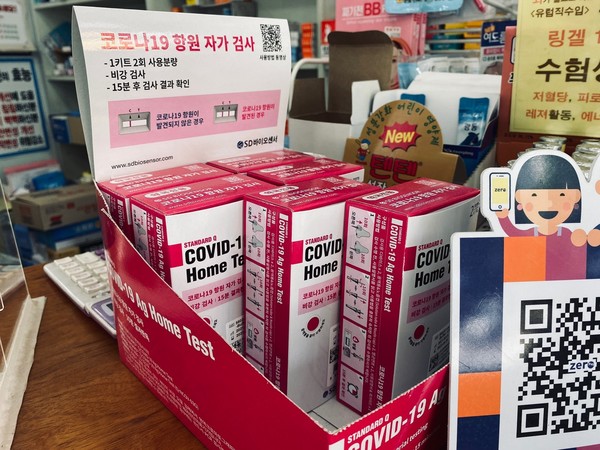The Korea Disease Control and Prevention Agency (KDCA) has admitted that the Covid-19 self-test kits could be one reason for an increase in the silent transmission behind the fourth viral wave.
“The sensitivity and false-negative rate of self-test kits are different from research and reports,” said Park Young-joon, KDCA’s epidemiological investigation director. “It is possible that silent transmission occurred in daily life after people testing themselves with the kits.”

Park added that some people might have tested positive via polymerase chain reaction (PCR) test after developing symptoms despite showing negative results in the self-testing kits. However, the government could not figure out the scale of such silently infected cases as it has not been collecting and managing the results of those who used self-testing kits.
The number of newly confirmed cases recorded 746 on July 6, but it rose to 1,212 the next day and surpassed 1,600 on Wednesday.
Private experts raised concerns that the increase of silently transmitted cases had been expected with the introduction of the self-test kit using the rapid antigen testing method, noting that the unexpected side effects of self-test kits had emerged in the medical field.
In December, the Korean Society for Laboratory Medicine verified the efficacy of 680 samples of the rapid antigen diagnostic kit, finding that the sensitivity only reached 29 percent. When the Seoul National University Hospital used the products in actual clinical trials, the results showed an even lower sensitivity of 17.5 percent compared to the RT-PCR test.
Experts pointed out that the self-testing kits would inevitably show lower accuracy in part because there is a high possibility that the sample collection would not be performed properly.
Professor Kim Mi-na of the Department of Diagnostic Laboratory Medicine at Asan Medical Center, who also chairs the Korean Society of Clinical Microbiology, said that approving self-test kits worked as one of the factors for the fourth Covid-19 wave.
“It is quite surprising that no one has raised an issue that allowing self-testing kits contributed to the spread of Covid-19,” Kim said. “Among many patients confirmed of infection through RT-PCR tests at the screening center of our emergency room had already tried the self-testing kits, and some said that the self-test kit showed negative results.”
In response, a KDCA official said, “We need active cooperation from the public along with our efforts to overcome the Covid-19, and we will also thoroughly respond to the rapidly changing infection controls.”

